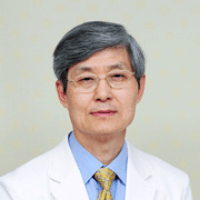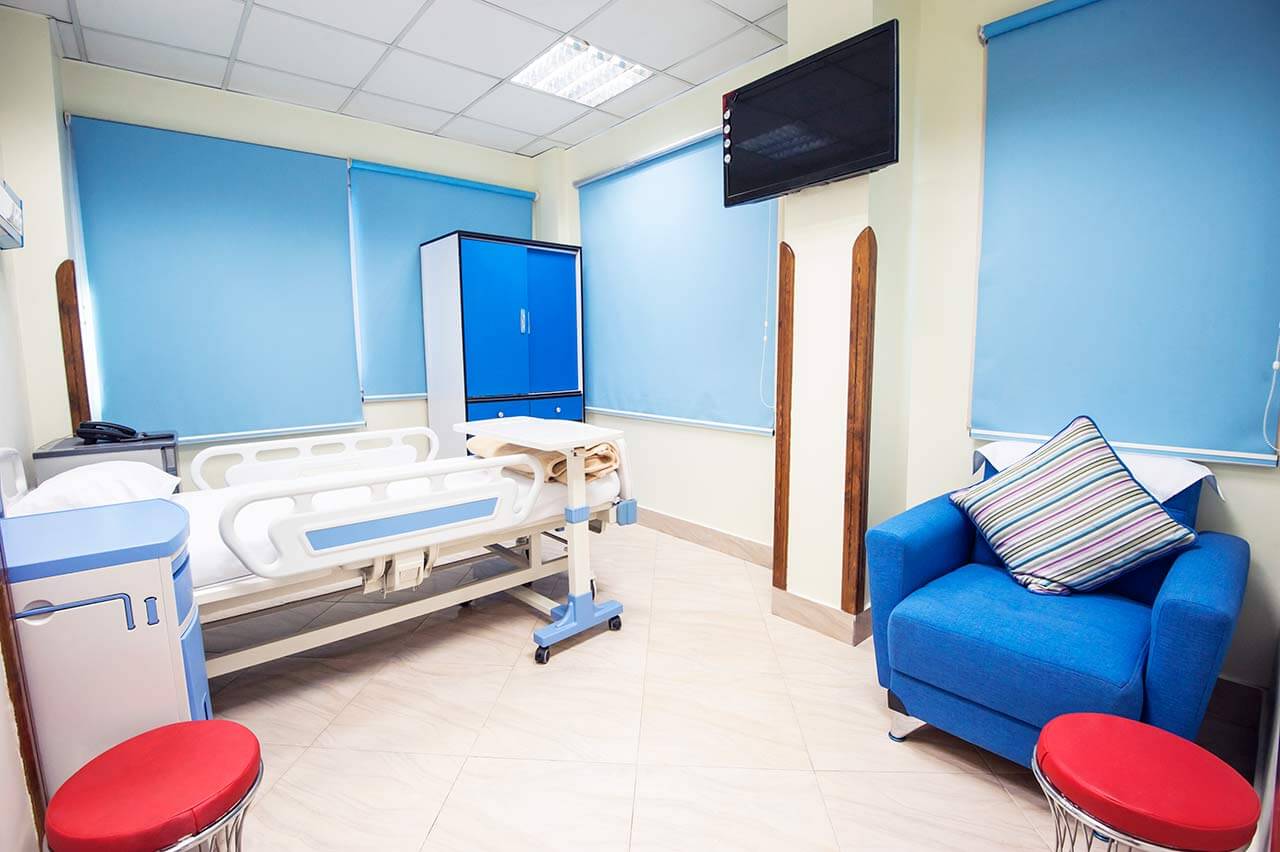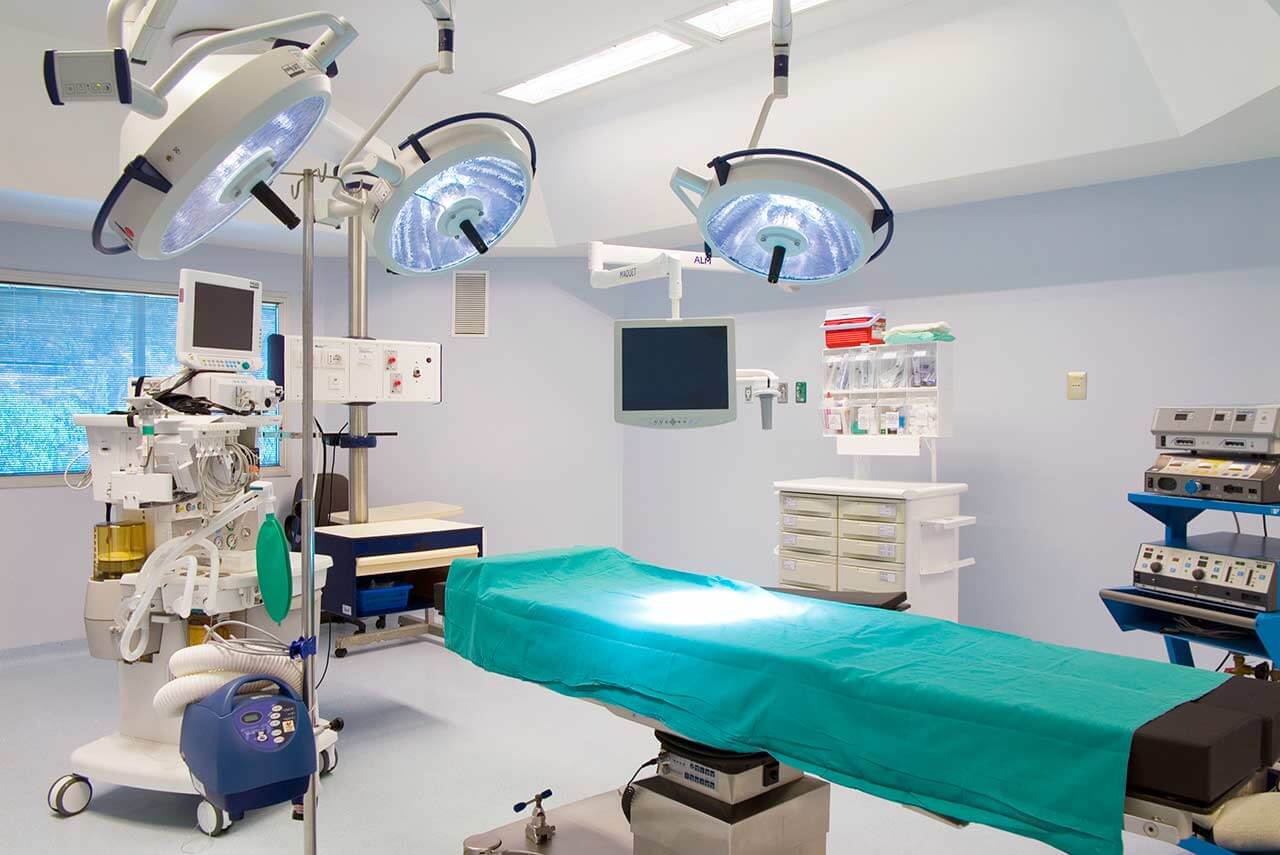
The program includes:
- Initial presentation in the clinic
- clinical history taking
- review of medical records
- physical examination
- laboratory tests:
- complete blood count
- general urine analysis
- biochemical blood test
- inflammation markers (CRP, ESR)
- blood coagulation analysis (aPTT, PT, INR)
- blood smear
- ultrasound of spleen
- CT scan (if clinically indicated, additional cost is 650 €)
- aspiration biopsy of bone marrow: (if clinically indicated, additional cost is 2500 €)
- immunohistochemical study
- cytogenetic analysis (Philadelphia chromosome detection)
- nursing services
- services of all leading experts
- explanation of individual treatment plan
Required documents
- Medical records
- MRI/CT scan (not older than 3 months)
- Bone marrow biopsy results (if available)
Service
You may also book:
 BookingHealth Price from:
BookingHealth Price from:
About the department
The Department of Oncology and Hematology at the Samsung Medical Center offers the full range of services in these medical fields. The main clinical focuses include diagnostics and treatment of various forms of oncological diseases and blood diseases. The medical team of the department strives not only to prolong the life of patients, but also to improve its quality. The department is headed by Prof. Dr. med. Park Keun Chil.
Cancer treatment requires an interdisciplinary approach, and therefore in order to ensure optimal results, there is maintained close cooperation with the specialists from the Departments of Surgery, Radiation Oncology, Pathology, Radiology. In addition, the department takes an active part in national and international clinical trials, thereby ensuring the introduction of the latest advances in cancer treatment in clinical practice.
One of the priorities of the department is the treatment of cancer with the help of chemotherapy, which in many cases can be supplemented by surgical intervention and radiation therapy. The experienced doctors of the department select the necessary chemotherapeutic drugs and determine their dosage depending on the type of cancer, the stage of pathology and patient’s general condition. If the body's reaction to therapy is negative or the patient has side effects, a dosage or a chemotherapeutic agent may be changed in the course of treatment.
The department specializes in the treatment of the following pathologies:
- Bowel cancer
- Stomach cancer
- Lung cancer
- Liver cancer
- Breast cancer
- Urethral cancer
- Brain tumors
- Oncological diseases of the male genitals
- Oncological diseases of the female genitals
- Acute and chronic forms of leukemia
- Myelodysplastic syndrome
- Different forms of anemia
- Hodgkin's and non-Hodgkin's lymphomas
- Bleedings
- Multiple myeloma
- Other oncological and hematological diseases
Curriculum vitae
- Study of Medicine at the Seoul National University.
- Fellowship at the Seoul National University Hospital.
- Residency at the Seoul National University Hospital.
- Internship at the Seoul National University Hospital.
Additional Education
- Visiting Associate, National Cancer Institute (NCI) and National Institute of Health (NIH), USA.
Clinical and Research Interests
- Lung cancer.
- Head and neck cancer.
- Esophageal cancer.
Membership in the Academic Societies
- Korean Medical Association (KMA).
- Korean Association of Internal Medicine (KAIM).
- Korean Cancer Association (KCA).
- American Society of Clinical Oncology (ASCO).
- American Association for Cancer Research (AACR).
- European Society of Medical Oncology (ESMO).
- International Association for the Study of Lung Cancer (IASLC).
- Korean Association for Clinical Oncology (KACO).
Photo of the doctor: (c) Samsung Medical Center
About hospital
The Samsung Medical Center was founded in 1994 and soon won the reputation of a medical facility of presidential standards, which it still preserves today. The hospital has 40 departments, 10 specialized centers and a huge Cancer Center with 655 beds.
The medical facility is equipped with advanced equipment (for example, a 32-channel spiral magnetic resonance tomograph and Somatom computer tomograph), as well as with the picture archiving and communication system that provides the highest level of medical care. In addition, the hospital boasts state-of-the-art infrastructure and outstanding medical personnel, which makes every effort to provide the patient with comprehensive first-class medical care, create a friendly attitude, show understanding and sympathy. The hospital constantly develops, monitors all world innovations and is engaged in active research activities.
Thanks to the outstanding treatment results, the hospital has the highest rating and enjoys worldwide popularity. For example, survival rates after liver transplantation and hematopoietic stem cell transplantation in children are among the best in the world. Also, the clinic demonstrates excellent treatment results for oncological diseases and the best survival rates of very premature babies (born on the 25th week of pregnancy) with a weight of only 380 g. The survival rates of very premature babies exceeds 50%, and this result is considered the best in the world.
Thus, the Samsung Medical Center is one of the best hospitals in South Korea and all over the world, known for its comfort and high-quality treatment. The hospital has received many awards, including the award of the Ministry of Health and Social Welfare.
Photo: (с) depositphotos
Accommodation in hospital
Patients rooms
The patients of the Samsung Medical Center live in comfortable patient rooms made in a modern design. Also specially equipped rooms for patients with disabilities are offered. Each patient room is furnished with a comfortable bed, a bedside table, a telephone and TV. The hospital offers free Internet access.
The medical center has an excellent infrastructure: pharmacies, a gift shop, a beauty salon, a bank, a restaurant, a food court, cafeterias, prayer rooms for representatives of different faiths.
Meals and Menus
The medical center offers patients delicious and healthy three meals a day: buffet breakfast, a nutritious lunch and dinner. The menu features a variety of international dishes, including vegetarian ones. In addition, the hospital has several food courts, cafeterias and a restaurant, where one can also taste delicious food and drink either hot or refreshing drinks.
Further details
Standard rooms include:




